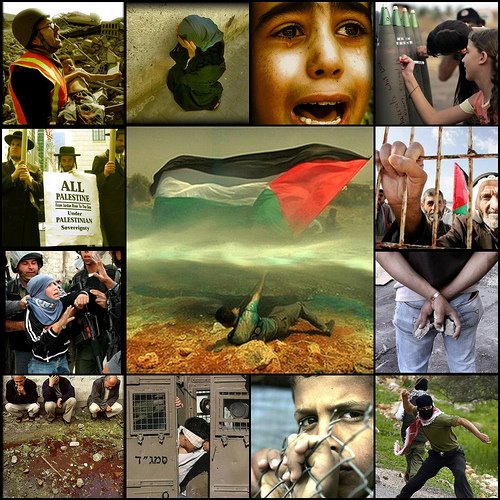The Elusive Peace

Introduction
1948..
Often we're presented with that date as the historical onset of the Israeli-Arab conflict. An overtly simplistic view of, what could classify as the most complex conflict in recent history. As if such a conflict could be the by-product of a single day, a by-product of a decision to have a new state.
This article doesn't claim neutrality or lack of bias. It can only claim factual actuality. This is the story strictly from an Arab's point of view.
The Onset:
A widely propagated misconception is that early Jewish settlers arrived in the British Mandate of Palestine as refugees from Nazi persecution. Whereas this statement holds partially true, it fails to denote the true nature of the very first "Aliyah" (Hebrew for ascent, meaning the immigration to the land of Israel) to this land. The very first immigrants arrived with the sole purpose of establishing a homeland, where the Jews were the majority.
The early settlers established agricultural communities that later gave rise to the first settlements.
They had two objectives to achieve: to liberate "Eretz Israel" from the British Empire and to liberate it from the Arab, non-Jewish inhabitants of the land.
Massive Aliyahs took place in the fold of the four decades that preceded the establishment of the Jewish state. Yet, the goal to shift the region's demography into a Jewish majority was nowhere to be seen.
To achieve the goal of "Liberation", the early settlers had to adapt their own versions of "freedom fighters".
In 1920, under the British colonial rule, the "Haganah" was formed as an illegal military organization with the sole purpose of protecting the rising Jewish state and liberating it from the British and Arabs alike.
At first glance, it may seem as an ordinary situation where a group of people seek liberating their homeland from an occupier. At close inspection, one notices how such an armed struggle was to “liberate" the land from those who actually inhabited it.
A group later broke out from the Haganah under the name"Irgun" / "Etzel"
In 1940, Abraham Stern formed the "Stern gang" and when he was later executed by the British in 1942 for alleged terrorist affiliations, the new leaders re-organized under the name "Lohamei Herut Yisrael" (Jewish freedom fighters) and its acronym "Lehi"..
At that time, the "Palestinian Resistance" took an un-organized form and was a direct spontaneous result of the settlers' attitudes. It sometimes took violent forms like in the 1920, 1921 and 1929 riots.
Life under the British Mandate of Palestine was characterized by protests and boycotts on a daily basis.
On the several occasions when it turned violent, it was made up of peasants and youths armed with sticks, clubs and stones in confrontation with either the British Army or the Jewish military groups.
The message was clear and simple. They were liberating their long-awaited. They wanted their "Eretz Israel" and they wanted the Arabs and the British out of it.
The Promised Land:
With the return to the Promised Land came another challenge, making sure it remains promised to them only. And thus arose the problem of denying the right to return to Palestinian refugees.
Whether the initial displacement was due to intentional expulsion or the direct effect of a war, remains disputed. Its being a by-product of a combination of both is the most probable explanation.
The "Absentees Law" was issued in 1950 that states the new state is to confiscate the land of the "Absent” Palestinians.
Thus diminishing the likelihood of the Palestinians having anything to return to, which was later further reinforced by the "Land Requisition " law that was passed in 1952. More, "redeemed land" meant that such lands were not to be sold or leased to non-Jews.
Another notable myth is that Arab countries jumped to attack Israel from say one- that they seeked destroying it out of pure anti-Semitic feelings. Such a claim can only be taken for granted as means of satisfying one's need to throw the issue at the back of one's mind as "settled" and "done with"
To make a long story short, the declaration of the established Israeli state was the last straw for the neighboring Arab countries who, so far, helplessly watched by as their brethren were expelled from their homes.
Being a Zionist is roughly defined as believing in the rights of the Jews to establish a homeland.
A misunderstood notion is that Arabs are anti-Semitic and anti-Zionists.
Truth is, most Arabs are Zionists and the rest regard this whole case with polite indifference. It's only normal to grant safety to the group of people that suffered from one of the worst genocides in our modern times.
It's not the Zionist notion that Arabs are against. What they are currently objecting to, especially when this other nation is seen as an extension of their own being is??????? Something missing
The establishment of the Jewish state coincided with the very first sparks of the Pan-Arabism nationalism that later encompassed the region.
For such a state to be born in the middle of such a region, requires mutual consent or at least, mutual compromise on all sides.
With failure to establish such terms, a newly born state that not only occupies the heart of the Pan Arabism movement- but also does so on the expense of the natives of the land was bound to create chaos in the region...